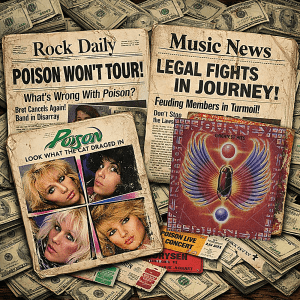Big Star: The Greatest Rock Band You’ve Never Heard Enough Of

Big Star: A Band That Built a Genre, Then Vanished
In the early 1970s, a band from Memphis quietly rewrote the rules of American pop rock.
Big Star—formed by Alex Chilton, Chris Bell, Andy Hummel, and Jody Stephens—crafted brilliant, heart-wrenching albums filled with Beatles-inspired harmonies, jangly guitars, and emotionally bare lyrics.
They were everything rock critics wanted: melodic, literate, tight as hell. But while artists like Bowie, Elton, and Zeppelin lit up arenas and radio waves, Big Star remained stuck in the shadows—brilliant but unheard.
So what went wrong? And why does Big Star matter more now than ever?
Big Star #1 Record: The Album That Wasn’t
Released in 1972, #1 Record was a power pop gem—an album full of gorgeous songwriting and aching sincerity.
The dual songwriting of Chilton and Bell was lightning in a bottle. Tracks like “Thirteen” and “The Ballad of El Goodo” weren’t just well-crafted—they were emotionally devastating in the best way.
Critics loved it. But distribution through Stax Records failed completely. Most fans never even saw the album in stores.
Chris Bell left the band soon after—disillusioned, struggling with depression, and feeling his artistic vision had been overlooked.
Radio City: Lightning Strikes Again, and Still No One Listens
Now a trio, Big Star soldiered on without Bell.
In 1974, they released Radio City, an album that critics still hail as a cornerstone of American rock.
“September Gurls,” written by Chilton, became a cult classic, eventually covered by everyone from The Bangles to Superdrag.
But just like #1 Record, it was doomed by label chaos.
Columbia had taken over Stax’s distribution and de-prioritized the album. Again, Big Star’s masterwork was lost in the shuffle.
Big Star: Third/Sister Lovers: Collapse, Chaos, and a Cult Classic
The third album, Third/Sister Lovers, was barely a band project at all—just Chilton and Stephens, spiraling creatively in a haze of depression and experimentation.
The songs were darker, stranger, and devastatingly personal.
Tracks like “Holocaust,” “Kanga Roo,” and “Nighttime” pushed beyond pop into emotional collapse.
The label shelved it. Fans wouldn’t hear it officially until years later. By then, Big Star was over.
Chris Bell died in a car crash in 1978, at age 27.
Big Star: From Obscurity to Blueprint
In the 1980s, something remarkable happened: the world caught up to Big Star.
The Replacements released “Alex Chilton,” a tribute to the man and his myth. R.E.M., The Bangles, Teenage Fanclub, and countless others cited Big Star as a formative influence.
Chilton and Stephens reformed the band in 1993 with members of The Posies and eventually recorded a new album, In Space, in 2005.
It wasn’t a cash grab. It was a celebration. The world had finally started to understand.
Big Star Legacy: Bigger Than Fame
When Alex Chilton died in 2010—just days before a planned Big Star reunion at SXSW—the outpouring was enormous. Musicians who had built careers on Big Star’s template came forward to honor the man and the music.
Today, all three of their original albums—#1 Record, Radio City, and Third—appear on Rolling Stone’s list of the 500 Greatest Albums of All Time.
They never played Madison Square Garden. But they changed lives.
If You’ve Never Heard Big Star…
Start with “Thirteen.” Move on to “September Gurls.” Then close the lights and listen to Third all the way through.
You may not be the same afterward.
Big Star’s True Success? They Never Disappeared—They Just Waited
Sometimes success isn’t loud. It doesn’t come with platinum plaques or arena lights.
Sometimes it comes 30 years later, in the liner notes of your favorite band. Or in a midnight song that understands you better than anyone else could.
Big Star should have been huge.
But maybe, just maybe, they were always exactly where they needed to be.




